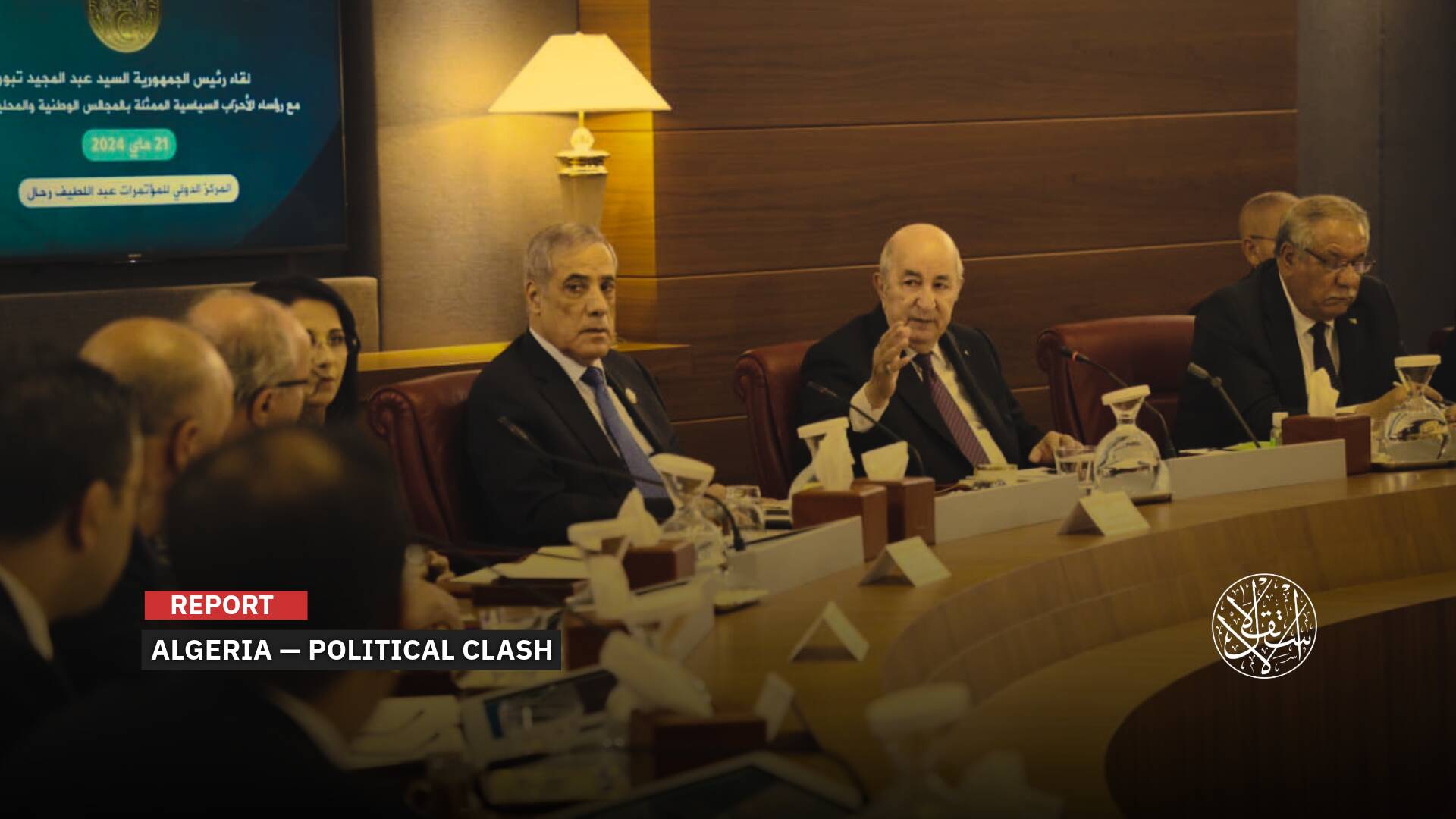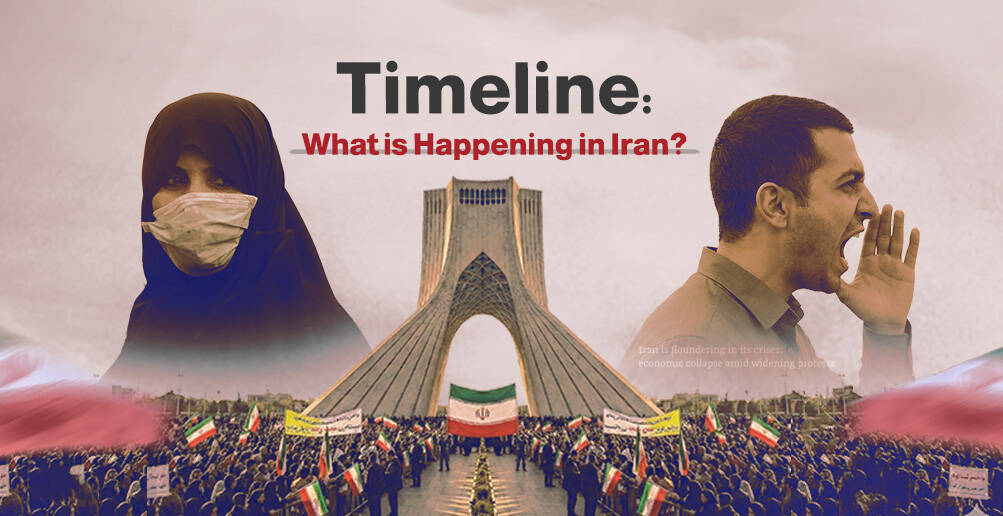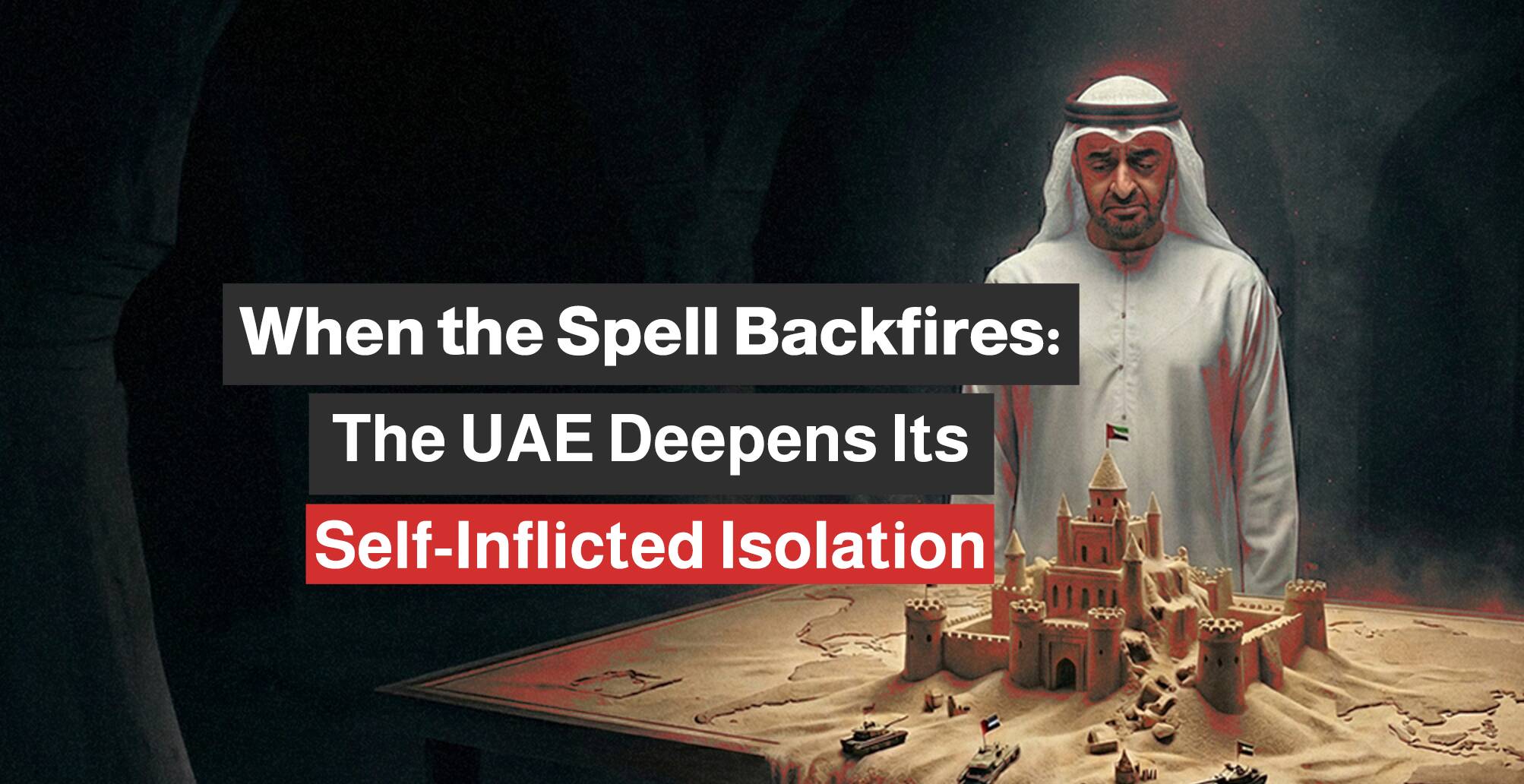Egypt’s 2025 Parliamentary Elections: The Most Perilous Since el-Sisi’s Coup

This parliament will need to amend the constitution if el-Sisi intends to stay in power beyond 2030.
After the results of Egypt's Senate elections (the upper chamber of parliament) revealed the dominance of pro‑el-Sisi parties and the complete absence of opposition representation, a similar pattern has emerged in the ongoing elections for the House of Representatives (the lower chamber).
The first stage of the elections, held on November 10 and 11, 2025, saw a distinct lack of competition for seats that are supposed to represent the will of the people.
The final results, which are due to be announced on December 28, are unlikely to differ from those of the Senate elections: a sweeping victory for parties loyal to head of the regime, Abdel Fattah el-Sisi.
Though this marks the third election since el-Sisi’s coup against the democratically elected President Mohamed Morsi, the upcoming parliamentary results are particularly concerning.
This election is poised to set the stage for Egypt’s future, with consequences that could determine whether the country moves toward a constitutional extension and a fourth term for el-Sisi, or if it prepares for an uncertain transitional phase without him.
The House of Representatives consists of 568 elected members, 284 of whom are elected through individual constituencies, and the remaining 284 through party lists.
Additionally, the head of the regime has the authority to appoint 28 members, bringing the total number of seats to 596. The new parliament is expected to convene in January 2026.
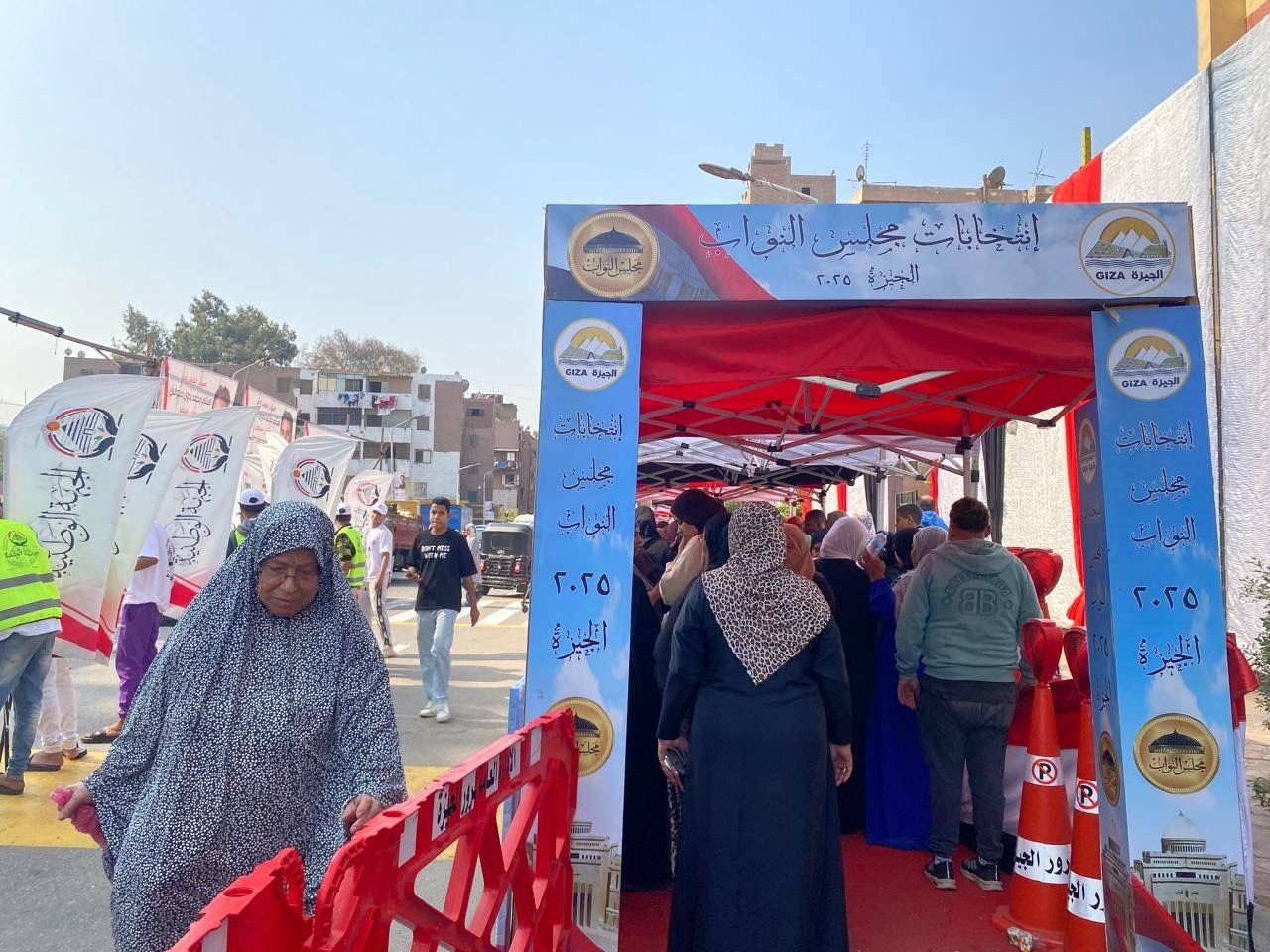
Fourth Term
The process of "engineering" the elections for the House of Representatives (similar to the Senate) seemed like an insistence on excluding any troublesome opposition voices, thereby fortifying the parliament by clearing it of dissenters and paving the way for it to play a "specific role."
The composition of the new parliament, engineered through a system of party lists and the candidates allowed to run, revealed the selection of those who will cooperate with the government over the next five years, as indicated by Prime Minister Mostafa Madbouly when he cast his vote.
It was clear that this new parliament is designed to include only those willing to collaborate in passing government laws, with its legislative and oversight functions likely to be limited to rubber-stamping whatever laws the government desires, without any opposition.
In this way, the authoritarian majority would align with the government’s vision of priorities, which seems to include considering how to extend el-Sisi’s rule into a fourth presidential term.
Before the elections, an analysis by the Tahrir Institute for Middle East Policy, dated October 21, 2025, pointed out that the House of Representatives elections “would take place in a politically controlled environment by the security agencies, due to the importance of their timing.”
This will be the last election before the end of el-Sisi’s third and final term in 2030, making this new parliament the “key player in Egypt’s political trajectory; it will either pave the way for a constitutional amendment extending el-Sisi’s term or set the stage for a political transition after him.”
It further explained that “for this reason, these legislative elections represent a pivotal and decisive political moment for Egypt, revealing the foundational structure of the country’s political system, its relationship with society, and the deepening entrenchment of authoritarian rule.”
Timothy Kaldas, a researcher at the Tahrir Institute for Middle East Policy, believes that el-Sisi needs a parliament he can fully control in order to extend his presidency.
Thus, the elections are being engineered to create a parliament tailored to the needs of the coming phase.
He told AFP on November 10 that If el-Sisi wants to stay in power beyond 2030, the next parliament will need to pass the constitutional amendments necessary to make that possible.
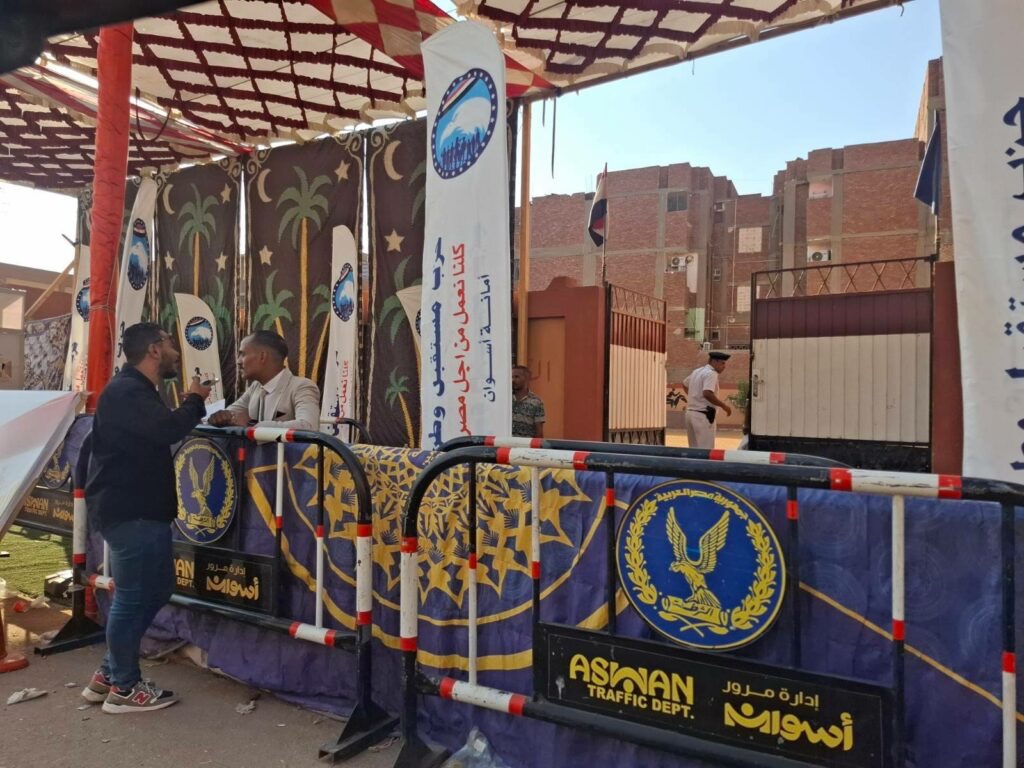
The researcher at the Malcolm Kerr-Carnegie Middle East Center, Yezid Sayigh, expects that el-Sisi will seek a new term and will attempt to amend the constitution to make that possible, and that this will be accompanied by an expansion of the military institution's powers.
He told al-Manassa on November 6, 2025, that the indicators of this are clear, with the use of external events to improve el-Sisi’s image and obscure any potential criticisms in other areas, along with calls for rallying behind the leadership.
Under the constitutional amendments made in 2019, el-Sisi’s term length was extended from four to six years, and his previous term was retroactively counted as his first, allowing him to remain in office until 2030.
Thus, the 2026 parliament will be the one to decide the end of el-Sisi’s presidency or its extension, which is the more likely scenario.
If the authorities decide to extend el-Sisi’s presidency for a fourth term, they will need to do so through parliament. In the event of avoiding any constitutional amendments, the parliament would be responsible for overseeing the political transition process.
Therefore, the composition of this parliament will directly reflect the Egyptian authorities’ intentions for the future, and the 2025 parliament will serve as a legal and political tool through which key decisions for the post-2030 period will be passed, according to the Tahrir Institute.
The composition of this parliament directly reflects the Egyptian authorities’ future intentions, and since these intentions have been made clear through the engineering of this parliament, with loyalty and political financing playing a major role in its formation, it may signal an intent to extend el-Sisi’s presidency through another constitutional amendment, according to observers.
Pro-government parties have not yet announced any positions regarding constitutional amendments.
However, journalist and broadcaster Mohamed el-Baz, chairman of both the board and editorial board of the al-Dustour newspaper, owned by the intelligence-linked United Media Services, launched a "popular demand" campaign in July 2025, calling for a fourth presidential term for el-Sisi.
This was based on the argument that the people “have become accustomed to a president who works tirelessly.”
This call had been echoed earlier by the late journalist Yasser Rizq, a close associate of el-Sisi, in December 2018, when he advocated for extending el-Sisi’s presidency, which was achieved in September 2019 through controversial constitutional amendments that allowed him to remain president until 2030.
On November 7, 2017, el-Sisi claimed that he "would not be able to sit as president against the will of the Egyptian people" and that "no president could exceed 8 years in office over two terms," adding, "I will not remain in power for one more day against the will of the Egyptian people."
However, he contradicted his earlier statement by amending the constitution in 2019 to allow him to remain in power for 16 years, and political analysts predict that after the 2025 elections, he plans to amend it again to enable him to rule for life.
The constitutional amendments proposed by 155 members of parliament, most of whom belong to the pro‑government "Support Egypt" coalition, granted el-Sisi a "third term" in 2019 and satisfied the military by providing additional powers to the armed forces.
Among these amendments was the "protection of the constitution and democracy, and safeguarding the rights and freedoms of individuals," which further increased the military's involvement in political life.
Politician Hossam Badrawi, the last head of the dissolved National Democratic Party following the January 25 Revolution, warned in an interview with al-Manassa in October 2025 against yielding to calls for entrenching el-Sisi’s presidency, describing such attempts as “blatant and disrespectful to the people in managing the elections.”
"I oppose amending the constitution to add a fourth presidential term, and those calling for a constitutional amendment are 'great hypocrites.'"
"I do not expect power to change hands in Egypt and call on el-Sisi to appoint deputies and relinquish the security grip," Badrawi added.
In parallel with the stifling of any opportunity for change in the elections, restrictions on the public sphere, political actors, and journalists have increased.
The press has been placed under near-total state control, the judiciary has lost its independence, and laws have criminalized political expression.
Since the 2013 coup, political parties, especially Islamist ones, have either been dissolved or taken over by subjecting them to security control, while independent opposition candidates have faced imprisonment, harassment, and exile.
Manipulating the Lists
The scene in the House of Representatives elections was no different from the recent Senate elections; polling stations searched for voters, and artificial crowds were mobilized by ordering employees and workers to show up. Vote buying was evident, appearing clearly in several practices.
According to Article 226 of the constitution, any constitutional amendment requires the approval of two-thirds of parliament members before being put to a public referendum. Therefore, there was a keen interest in ensuring more than this percentage through a "unified list" in the elections, dominated by the regime's parties.
The elections began on November 10 and 11, amid widespread voter apathy due to the lack of real elections, with nearly half of the seats being decided uncontested by the regime's party members.
Voter mobilization with el-Sisi's money was repeated, with funds offered to voters (ranging from 200 to 500 Egyptian pounds, or $4 to $10 per vote), along with bags of food supplies. This occurred despite the lists being pre-engineered to ensure the parliament would be predominantly loyal to the regime.
Zawia 3 website reported on November 11, citing field testimonies from several governorates, that the pro-regime Mostaqbal al Watan party had enlisted numerous charitable organizations to mobilize voters, offering 300 pounds and food packages to sway votes.
The left-wing Egyptian Democratic Party reported in a statement the distribution of food packages containing essential goods and election bribes aimed at influencing voter intentions.
In addition to el-Sisi's money, the elections were engineered to favor the pro-regime parties, just as in the Senate elections, which concluded in August 2025 with victories for all candidates from the regime's parties (Mostaqbal al Watan, Humat al-Watan, the National Front, and the Republican People’s Party).
The National Election Authority excluded three electoral lists and several opposition candidates under the pretext of their failure to complete mandatory military service (legal exemption), even though at least six of them had previously run for and won in earlier elections!
This reflected the National Election Authority’s use of military service as a political criterion for exclusion, without any objective justification.
Thus, the House of Representatives elections appeared to be a carbon copy of the Senate elections, particularly in how these elections were engineered and arranged to ensure the dominance of the pro-regime parties over the parliament.
The system under which the elections were held was reflected in the scenes at the polling stations; half of the seats were allocated to the closed list (government-backed) list, which ran alone in the elections.
The other half was for individual voting, in which some seats from the pro-regime parties were left open for a few opposition parties.
No competing lists were presented against the National List for Egypt, which ensured its uncontested victory with half of the seats, approximately 284 out of 568, without any real competition or voting.
The National List consists of 12 parties, led by pro-regime parties. While the Mostaqbal Watan Party maintained its lead, its dominance weakened slightly, securing 120 seats (42%) in the 2020 parliament, compared to 145 seats (51%) in the 2015 parliament.
Statistics from the 2025 Senate elections revealed that the regime party (Mostaqbal al-Watan) dominated the scene, securing 118 seats out of 300, followed by other pro-regime parties (Humat al- Watan with 72 seats, then the National Front Party in third place with 45 seats).
In the following ranks, the pro-regime People’s Republican Party won 14 seats, followed by the Egyptian Social Democratic Party (left-wing opposition but allied with the regime) with 7 seats.
The Pro-Regime Youth Coordination of Political Parties and Politicians won 16 seats, effectively giving pro-regime parties 276 seats out of 300.
Opposition parties that are considered docile received the following seats: the Wafd Party with 6 seats, the Reform and Development Party, and the Justice Party each with 5 seats.
The Conference Party and the Tagammu Party each received 3 seats, and the al-Nour Party and the Freedom Party each received 2 seats.
One seat was won by other nominally opposition parties considered aligned with the regime, including the Nasserist Party, Free Egyptians Party, the Sadat Democratic Party, Iradet Geel Party, Egyptians Party, Al-Wa’i Party, and the Geel Party.
Observers expect the results of the House of Representatives elections to be no different from those of the Senate, with pro-regime parties dominating the majority of seats, preparing for a constitutional amendment and an extension of El-Sisi's rule.

A Farce to Bolster the Regime
Independent human rights organizations have deemed the legislative elections in Egypt to select members of the House of Representatives a "farce to strengthen el-Sisi's regime," asserting that they "lack any competitiveness, given the tight restrictions on meaningful political participation."
Seven organizations, in a statement published by the Cairo Institute for Human Rights Studies (CIHRS) on November 9, 2025, stated that "the House of Representatives has become a pivotal tool in entrenching authoritarian rule."
They emphasized that under el-Sisi’s rule, "the House of Representatives has not been a mechanism for democratic representation or public accountability, but its role has largely been reduced to approving and facilitating the executive’s decisions, without exercising any meaningful oversight."
The organizations speculated that the upcoming electoral process would reproduce this role, creating a legislative body with no real oversight tools, lacking balance, and offering little more than a symbolic space for pluralism.
They argued that these elections would further entrench the existing autocratic situation, rather than offering a democratic path for citizens to freely choose their representatives, due to the ongoing exclusion of opposition voices from public life, undermining any chance of truly competitive elections.
The organizations also addressed the National Election Authority’s exclusion of three electoral lists and several opposition candidates under the pretext of their failure to complete mandatory military service, a new arbitrary interpretation of the law.
They pointed out that at least six of the excluded candidates had previously run for and won in prior elections without any issues regarding their military service status, and that military service exemptions in Egypt can be granted for reasons unrelated to any violation, such as family circumstances, political reasons, or marriage to a foreigner.
This reflected the National Election Authority’s use of military service as a political tool for exclusion, lacking any objective justification, and violating international standards, including Article 25 of the International Covenant on Civil and Political Rights, which prohibits the imposition of unwarranted or discriminatory restrictions on the right to stand for public office.
The Middle East Eye website described the parliamentary elections on November 10 as a "carefully staged farce," arguing that "The net result is a parliament that is bought, pre-sorted and immunised against dissent."
“The real contest over who qualifies as a candidate, and whether parliament will help extend Sisi's rule beyond 2030, has already been decided behind the scenes,” Middle East Eye reported.
Sources
- Egypt begins voting in parliamentary elections
- Egypt’s Parliamentary Elections Will Pave the Way for What Comes Next
- Why Egypt’s parliamentary elections are a carefully choreographed sham
- El-Sisi’s Last Parliament? "Perpetuating the Presidency" Dominates the Atmosphere of "Sham Elections" [Arabic]
- Tailored for the "Regime Supporters"... Your Guide to Understanding the Parliamentary Elections [Arabic]
- "Box of Goods" and the "Security Candidate"... Vote Buying Makes a Comeback in Egypt’s Elections [Arabic]






